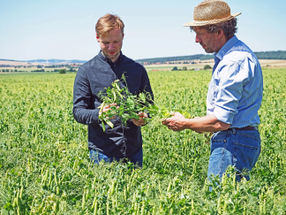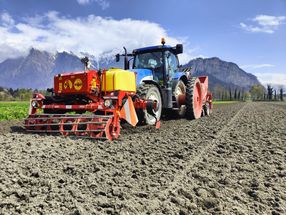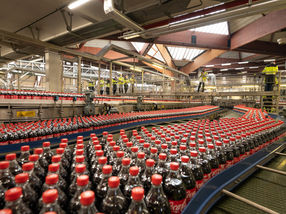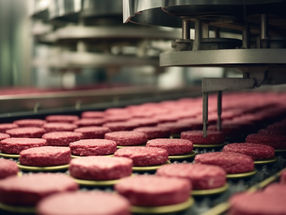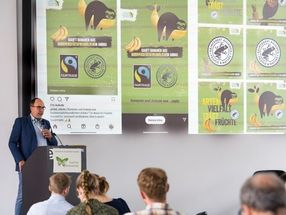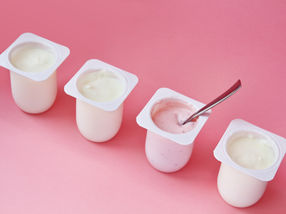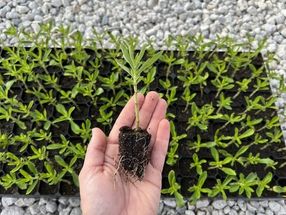Cool summer turns Serbia's honey industry bitter
After striking gold last year and exporting more than meat producers, Serbian honey farmers and their bees have been stung by freak weather - and are now on the brink of disaster.Record rainfall, floods, freak storms and hail have tormented Serbian farmers this summer, but it is the beekeepers who may end up with the greatest losses.
Just as an expansion of beekeeping over the past three decades began paying dividends, the worst weather for bees in the past half-century threatens to ruin the country's entire industry. Last year, Serbian honey farmers exported an all-time record of 3,370 tons of honey for 15 million dollars, most of it to Germany and Italy - massive markets that demand top quality produce.
The revenue from honey exceeded the combined value of Serbian pork and beef exports, for example.This year, output is expected to decline by up to 85 per cent. Even with the price pushed up from 3.70 to 4.90 euros (4.80-6.40 dollars) per kilo, there is not enough honey to meet orders already placed.The disaster began in mid-May just as the bees were due to begin harvesting acacia trees.The black locust trees are the first that the bees harvest after the winter. Light, mild, with a rich flavour but easily digestible, it is the most popular honey globally. The weather turned cold, with the overnight temperature dropping from the ideal 15 to 16 degree Celsius to between 6 and 9 degrees across Serbia, resulting in acacias producing little or no nectar.
In 2013, the Serbian beekeepers' alliance SPOS collected 3,044 tons of acacia honey. This year it was less than than 300, SPOS president Rodoljub Zivadinovic said.The weather never warmed up and storms nearly every other day aggravated the situation, so other sorts of honey - field flowers, linden and chestnut - were also decimated."Normally, I extract 20-25 kilos of acacia honey from each hive and about twice as much field honey. So far, I got less than half of each sort," said beekeeper Mladen Jovanovic.His 80 beehives in the mountains east of Cacak, in central Serbia, are typical of bee farms in the country.
A retired former store manager, Jovanovic is a quintessential beekeeper - the bees and honey are both a hobby and a side job adding money to the thin household budget.After harvesting several tons of honey in 2013, this year he had to provide food - a mix of sugar, honey and other ingredients - to keep the "bee societies" from swarming and splitting, or even dying.Normally, around a dozen kilos of honey remain in the hive for the bees to feed on, but after the miserable harvest, many have not produced enough to sustain themselves.It is clear that the bees will need to be fed throughout the winter. Like many of the other 12,000 registered beekeepers in Serbia, he worries whether he will be able to afford the ingredients for the food mix.
SPOS is now pressing the state for subsidies that could help beekeepers and their bees endure the coming winter.But the outlook is bleak, with the Serbian government planning austerity measures, including wage and subsidy cuts, in order to reduce the budget deficit.With the 1.7 billion euros (2.2 billion dollars) the country needs to repair the damage cause by floods, the prospect turns even bleaker for the stricken beekeepers.The floods in May, which followed three days of the heaviest rainfall on record, devastated parts of central and western Serbia, as well as parts of Bosnia and Croatia.
Swollen rivers and landslides killed 51 people, swept away houses, bridges, roads and railways - and more than 6,000 beehives, or 1 per cent of the total in Serbia.It is estimated that only 5 per cent of beekeepers are full-time professionals, with the equipment and savings to deal with the crisis.Others only have their meagre earnings to fall back on. Jovanovic estimates that those farmers, unable to nurture their bees through the winter, may simply give up before risking their own scarce resources.
If worries persist that exports to the West may be lost for good to producers from other countries, many beekeepers may opt against risking investment to rebuild their stock, Jovanovic said.(dpa)
Most read news
Other news from the department Production

Get the food & beverage industry in your inbox
By submitting this form you agree that LUMITOS AG will send you the newsletter(s) selected above by email. Your data will not be passed on to third parties. Your data will be stored and processed in accordance with our data protection regulations. LUMITOS may contact you by email for the purpose of advertising or market and opinion surveys. You can revoke your consent at any time without giving reasons to LUMITOS AG, Ernst-Augustin-Str. 2, 12489 Berlin, Germany or by e-mail at revoke@lumitos.com with effect for the future. In addition, each email contains a link to unsubscribe from the corresponding newsletter.












